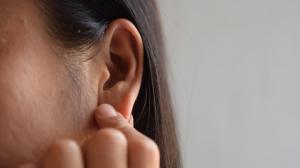10 Tips to Help You Stay Awake While Studying

Have You Ever Found Yourself Feeling Sleepy Every Time You Start Studying? You're not alone! Many students struggle to stay awake while studying, especially when the material is boring or when they feel exhausted. However, the ability to remain alert is vital for effective learning and information retention. Remember that the brain is like a muscle; it needs exercise and stimulation to function efficiently.
In this article, we will explore 10 effective strategies that will help you stay awake and focused during your study sessions. Whether you are a night owl or prefer to wake up early, you will find these tips helpful in achieving your academic goals effectively. Let's start with the first tip:

-
Do Stretching Exercises to Wake Up Your Body
Stretching exercises play a very important role in helping people wake up. Therefore, it's a good idea to move your body a little during your study session without causing any disruption. You can try extending your arm by placing one arm behind your back and pulling the other wrist with one hand, or by bending your body slightly while placing your hand on the back of the chair. This method is very effective and has been tried and tested to bring your body back to a state of alertness, so be sure to give it a try.
Read more: What is Active Learning? The Best Guide for Active Learning in 2024

-
Drink Enough Water
Dehydration is a condition that occurs when the body loses more fluids than it takes in, negatively affecting various bodily functions, including cognitive functions. Research indicates that dehydration can lead to impaired short-term memory, concentration, computational ability, and alertness.
A study conducted in 2010 showed that even mild to moderate levels of dehydration adversely affect cognitive performance. The results indicated that dehydration could cause swelling in parts of the brain, intensifying neural signals and making daily tasks more difficult.To ensure optimal performance during studying or intellectual activities, it is crucial to maintain hydration.
It is recommended to drink about half a gallon (approximately 2 liters) of water daily, especially if you are physically active or live in a warm climate. Dehydration not only affects energy levels but can also lead to difficulties in concentrating while studying.

-
Change Your Study Environment
If you find yourself sitting upright in your chair for hours on end, it can be easy to doze off without even realizing it, right? In such moments, taking a short break—like washing your face or going to the restroom—can be beneficial. It's also important to stand up a bit and stretch your body, which may have stiffened from long hours of studying.
Changing your study location can have a significantly positive impact. If you're studying in your room, try moving to the living room, or if you're in a café, consider heading to the library. Switching subjects while in a new environment may help improve your mood and reduce feelings of drowsiness. Visiting libraries is also a great idea; you can browse some reference books and learn many new things, which might reveal weaknesses you didn't expect.
Read more: Preparing Lessons: The Best Steps and Tips for 2024

-
Read Aloud
Reading aloud is an effective way to combat drowsiness and improve concentration while studying. Many students often feel bored and sleepy, especially when trying to memorize study materials. In those moments, this technique can be a fantastic solution to overcome sleepiness. It not only enhances focus but also stimulates your auditory senses, helping you stay awake and better remember the content of your books and notes.
While some may hesitate to try this method, we assure you that it is genuinely effective. So, if you're looking for a way to enhance your study experience and fight off drowsiness, don’t hesitate to give reading aloud a try!

-
Try Changing Subjects or Adopting a Different Study Approach
If you start to feel sleepy, consider studying something different from what you are currently focusing on. This can be done by switching subjects; for example, if you're studying English and feel drowsy, we recommend moving on to another subject like social studies, or trying a different study method within the same subject.
For instance, if you feel sleepy or lose focus while studying a lengthy English text, try memorizing vocabulary or reviewing and relearning words that you didn't understand or forgot in the long passage you were reading earlier. You could also revisit and relearn grammatical points. This approach is remarkably effective in keeping you awake, so give it a try!
Read more: Do You Forget What You Studied? 4 Tricks for a Strong Memory
There are other methods you can try, including:

-
Massage Your Ears
Ear massage is an effective technique for alleviating drowsiness and increasing alertness. Here’s how to do it:
- Start by using your thumb and index finger to gently pull the upper part of your ear.
- Then, alternate between pulling the middle edge of the ear and the earlobe, applying gentle pressure. Finally, massage the entire ear to help relax it; this helps activate the nerves in the ear area.

-
Study While Standing
Standing up can help prevent you from feeling sleepy easily. So, try standing and reading the information you need to study aloud, or memorize vocabulary while moving around the room.

-
Brush Your Teeth
It may seem like an unusual method, but it’s truly effective. Not only does brushing your teeth freshen your mouth, but the act of going to the bathroom to clean your teeth and moving your hands can also uplift your mood. For the best results, use a strong mint-flavored toothpaste.

-
Cool Your Neck and Armpits
Cooling the neck and armpits is an effective technique for lowering your body temperature, which can help reduce feelings of drowsiness. Here are some methods you can use:
- Fill bottles or plastic containers with water and place them in the refrigerator or freezer to chill. Then, apply them to your neck or armpits for a few minutes.
- You can also dampen small towels with cold water and place them under your armpits or around your neck. Be sure to replace the towels when they warm up.

-
Lighting
Light plays a fundamental role in regulating our biological rhythms and its impact on alertness and sleep cannot be ignored. Our bodies respond to environmental signals such as light and darkness, which means that exposure to light can enhance alertness, even in environments where lighting may be insufficient.
Bright light exposure, especially in the morning, reduces the production of melatonin, the hormone responsible for regulating sleep, thereby promoting wakefulness and stimulating mental activity. Research conducted on zebrafish has shown that exposure to light activates specific proteins in the brain, which helps enhance alertness. Therefore, it is beneficial to take advantage of natural light during the day to boost your wakefulness.
In Conclusion
In this article, we have outlined the reasons for drowsiness while studying and how to address it, along with some fundamental solutions. By understanding how to avoid sleepiness during study sessions and adopting both physical and mental techniques to maintain alertness, we can create an effective study routine.
This combination of strategies forms a strong framework for staying awake, attentive, and productive. The ultimate goal of mastering these strategies is not only to enhance academic performance but also to promote a sustainable approach to learning and achieving advanced knowledge.
Read more: How to Make Lesson Plans? The Best Way to Plan Lessons in 2024






